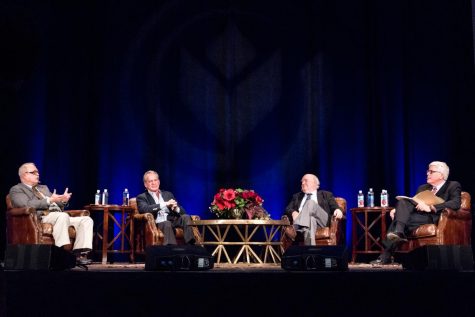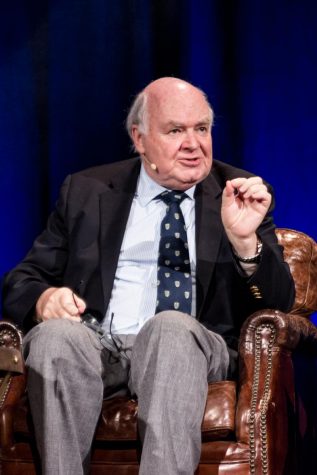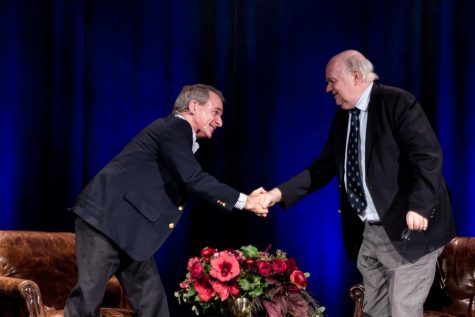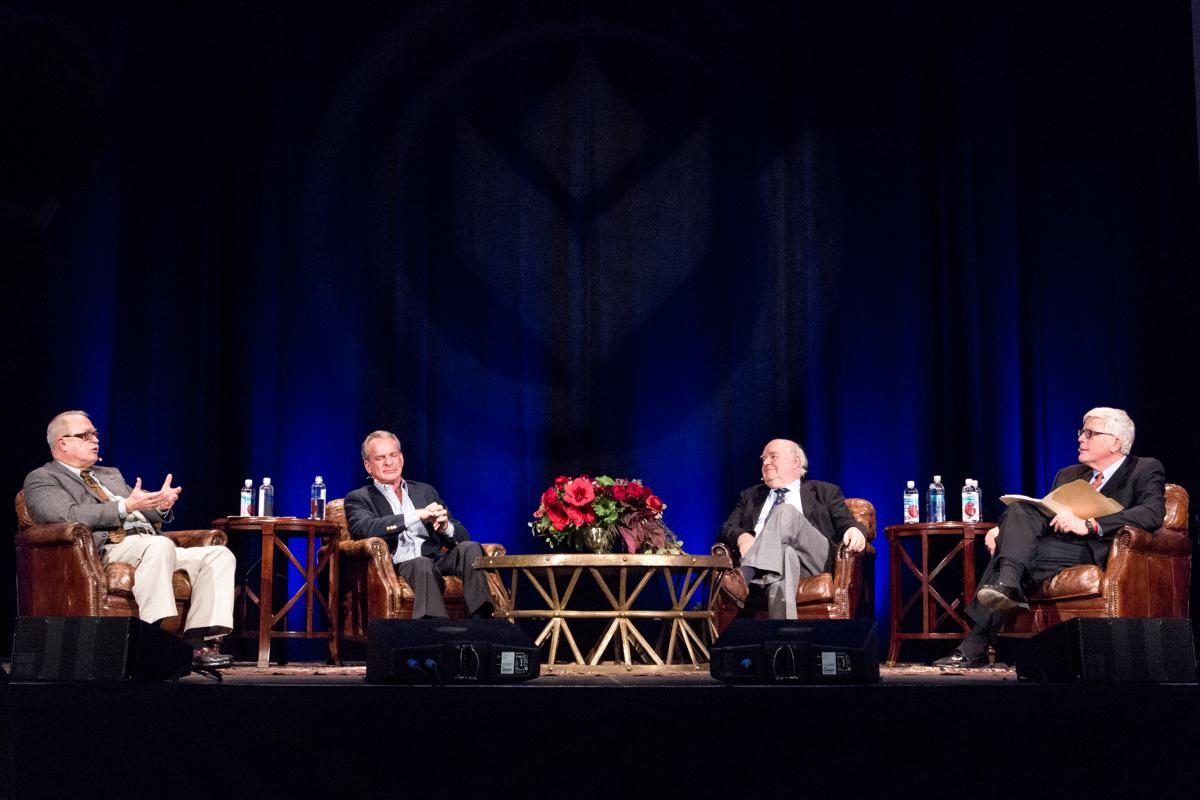On Friday evening, Biola students and others from the community gathered to sit in on a panel entitled “God, Science, and the Big Questions,” that addressed questions about the relationship between science and Christianity. The panel is part of Biola’s efforts to place more emphasis on science education and to equip students to defend their faith.
Talk show host Hugh Hewitt moderated the panel, and audience members could send in questions for the panelists through social media. The panel featured Research Professor of Philosophy William Lane Craig, distinguished Professor of Philosophy J.P. Moreland and John Lennox, professor of mathematics at Oxford University. The event also streamed live online worldwide to countries such as Kenya and El Salvador. Several Biola programs organized the event including the Christian Apologetics Program, the Torrey Honors Institute, the Masters Program in Science and Religion and an administrative team from Metzger.

FOCUSING ON SCIENCE AND CHRISTIANITY
Professor of Comparative Religion and Apologetics Craig Hazen said the apologetics program wanted to give Biola students and the community as many opportunities as possible to listen to Lennox speak. Lennox, an expert on the relationship between science and Christianity, has also written many books related to the topic, including “God and Stephen Hawking.” In addition, Craig and Moreland were chosen as panelists because of their top scholarship in their field of study and have the ability to generate audience interest. Hewitt was chosen for his presence in the media and Hazen felt that he contributed to the overall atmosphere of the panel.
“He’s one of the brightest guys in the media. He’s one of the few people who can do a political-news show in the afternoon and then come to the gymnasium at Biola and moderate a pretty high level discussion on philosophy, science and God. Very few media personalities can do that,” Hazen said.

The apologetics program has hosted similar events, such as conferences at other churches outside of Biola’s campus, but the panel proved new experiment. Hazen said that the panel helped create a bigger presence in the sciences for Biola and the university-wide effort made it a large success.
Hazen also said the interest of the audience influenced the choice in topic for the panel.
“We wanted a topic with general appeal that helped focus on the sciences. With Biola’s new interest in having a bigger presence in science education, it made a lot of sense to do something that focused on science,” Hazen said.
The panelists hope that the audience took away valuable information after attending the panel. Craig hopes that the community understands that some questions related to the debate between religion and science still remain unanswered.
“There are still a lot of unanswered questions to be explored,” Craig said.
Moreland hoped that the audience understood the compatibility of Christianity and science.
“The main thing I hope people got out of it is you don’t have to be anti-science or anti-intellectual to be a Christian. Christianity is a rationally defensible religion that makes sense. Christians have answers to the questions people are asking,” Moreland said.
A NEW VISION FOR SCIENCE
Hazen said there exists an initiative to create a presence in the sciences through an honors program modeled after the Torrey Honors Institute. A new vision for science education at Biola as well as plans to build a highly ranked facility to teach science and engage in research is also underway. Due to cost and planning, these changes will not be implemented until a future date.
Hazen said the new facility will give students the chance to integrate faith and science.
“We try to get the best and brightest Christian students in here who want to study science and give them a place where they can learn sciences at the top level in not just science, but all that surrounds science — the very best of philosophy, theology, and biblical studies that touches on science,” Hazen said.








